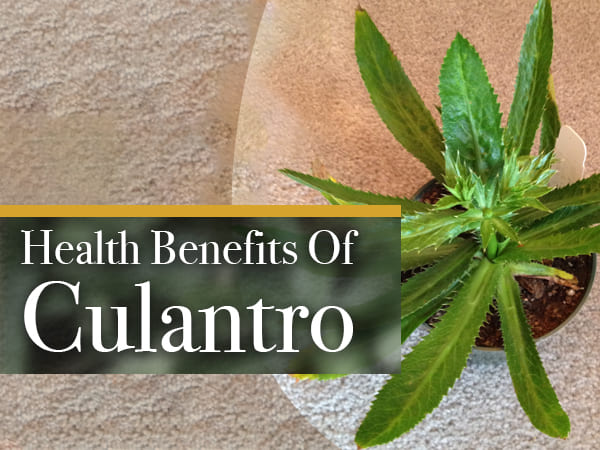
1. Bitter Gourd (Karela)
Bitter gourd, also known as bitter melon is one among the best healthy vegetables in rainy season. The anthelmintic activity of this vegetable is effective against a group of parasites or worms found on the intestines.
As we know that gastrointestinal parasites are higher during the rainy season; the veggie helps kill those microbes and promote good digestive health. [1]
 FAQs On Viral Hepatitis: What You Should Remember
FAQs On Viral Hepatitis: What You Should Remember

2. Bottle Gourd (Lauki)
Bottle gourd, also known as long melon, lauki, dudhi or ghia in India is a traditional healing vegetable for monsoon-related problems. It is rich in phosphorus, magnesium and potassium and low in fat.
The pulp of the veggie keeps the stomach cool and its antibilious properties remove excess bile from the body. Bottle gourd is also effective against fever, cough and other bronchial disorders that occur mostly during the rainy season. [2]
 27 Fruits And Vegetables Naturally Rich In Malic Acid
27 Fruits And Vegetables Naturally Rich In Malic Acid

3. Pointed Gourd (Parwal)
Pointed gourd, also known as patol, potala or palwal has many therapeutic uses. Its antipyretic activity helps reduce fever and cold, a common occurring illness during the monsoon.
During the rainy season, most of the people eat outside foods which increase the risk of liver damage or inflammation. Pointed gourd has hepatoprotective and anti-inflammatory activities that help protect the liver from inflammation and other problems. Its antimicrobial property also works against multiple pathogen strains. [3]
 15 Effective Home Remedies To Treat Or Prevent Hay Fever Symptoms
15 Effective Home Remedies To Treat Or Prevent Hay Fever Symptoms

4. Indian Squash/ Round Melon (Tinda)
Courtesy: sparindia
Indian squash is considered as a baby pumpkin packed with multiple bioactive compounds. Its pulp is less fibrous which is easily digestible by the stomach.
Tinda contains polysaccharides, vitamins and carotene that boosts our immunity and keeps us healthy. Its antioxidant property protects us from multiple pathogens that affect our body. This makes it one of the best vegetables to eat during rainy season.
 Scoliosis Awareness Month: Importance Of Diet, Nutritional Tips And Yoga For People With Scoliosis
Scoliosis Awareness Month: Importance Of Diet, Nutritional Tips And Yoga For People With Scoliosis

5. Button Mushrooms
There’s a controversy surrounding the inclusion of button mushrooms in the list of healthy vegetables to eat in monsoon season Many people believe that they may contain harmful microbes as grown in the damp soil but according to some experts, it would be wrong to totally eliminate mushrooms from the diet.
Mushrooms are low in calories and have high antibacterial and immune system enhancing properties. Their bioactive compounds help promote human health. Button mushrooms can be eaten during the monsoon after proper washing and cooking. [4]
 25 Nature’s Most Powerful Antibiotics: Number 21 Is Surprising
25 Nature’s Most Powerful Antibiotics: Number 21 Is Surprising

6. Radish (Mooli)
Radish is a root vegetable with multiple benefits. It is widely used in the treatment of stomach disorders, hepatic inflammation, ulcers and other infections. The polyphenols and isothiocyanates in the veggie help improve the immune system functioning during the monsoon season.
READ RELATED: Proven Ways You’re Ruining Your Heart Say Doctors
The anti-inflammatory properties of radish prevent inflammation of the respiratory organs due to cold and fever. [5]
 What Is Culantro? Health Benefits, Side Effects And Recipes
What Is Culantro? Health Benefits, Side Effects And Recipes

7. Beetroot (Chukandar)
Beetroot is a health promoting and disease preventing veggie of the rainy season. The active compounds in beetroot are well-absorbed by the intestinal cells.
Beetroot is very effective in maintaining the microbiome of the gut and its antimicrobial effects prevents the outgrowth of harmful bacteria. [6]
 40 Best Superfoods To Maintain Oral Health
40 Best Superfoods To Maintain Oral Health

8. Teasel Gourd Or Spiny Gourd (Kakoda/Kakrol/Kantola)
Teasel gourd is an egg-shaped yellow-green veggie with a soft spine and bitter flavour. It is a popular rainy season vegetable to include in your diet.
According to the Ayurveda, teasel gourd has hepatoprotective, anti-inflammatory, laxative and antipyretic properties. It prevents liver damage, inflammatory illnesses (cold, cough) and helps reduce the fever. [7]

9. Elephant Foot Yam (Ool/Jimikand/Suran)
Elephant foot yam has several nutritional and functional benefits. The gastrokinetic effect of this tuber corrects gastrointestinal disturbances, which is high during the monsoon season.
Also, the phenolic compounds and flavonoids in suran improves the immunity so that our body can fight any infections prevalent during the monsoon. [8]

10. Ridge Gourd (Turai/Tori)
Ridge gourd is a natural detoxifier that purifies the blood and helps flush out toxins from the body. It soothes the stomach and boosts the immune system.
Turai is rich in carotene, amino acids, protein and cystine. Its leaves are also rich in flavonoids and can be added to vegetables. Ridge gourd helps in proper digestion and improves the functions of the excretory system. [9]

11. Ivy Gourd (Kundru/Kundri/Tindora/Tendli)
Ivy gourd, also known as little gourd or perennial cucumber is a green-coloured vegetable that turns bright red when ripe. It has potent anti-inflammatory properties that prevent multiple ailments, especially seasonal-related disorders like allergies, cold, cough, fever and infections. Ivy gourd is also good for managing glucose levels and high cholesterol.

Common FAQs
1. Which vegetables are good in the rainy season?
Vegetables like bitter gourd (karela), round melon (tinda), pointed gourd (parwal), ridge gourd (turai) and yam (ool) are considered healthy during the monsoon season. They prevent the body from many infections which are prevalent during the season as well as boost the immune system.
2. Can we eat leafy vegetables in the rainy season?
Leafy vegetables like cabbage, cauliflower and spinach are considered unhealthy for the body during the rainy season. The dampness of the leaves makes them a favourable breeding ground for microbes, which is why they easily contaminate the green leafy vegetables and cause us food poisoning, when consumed.
Source: boldsky blog









